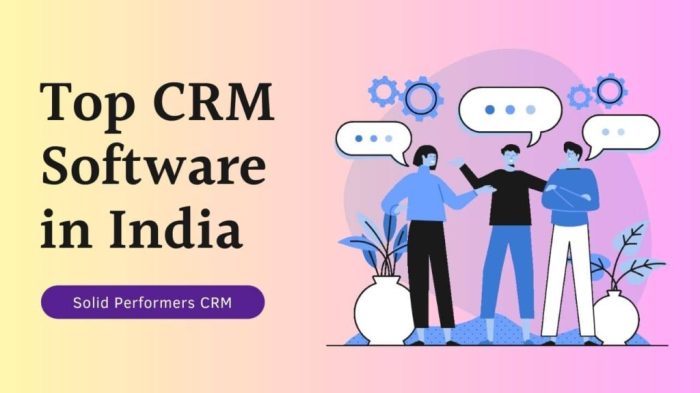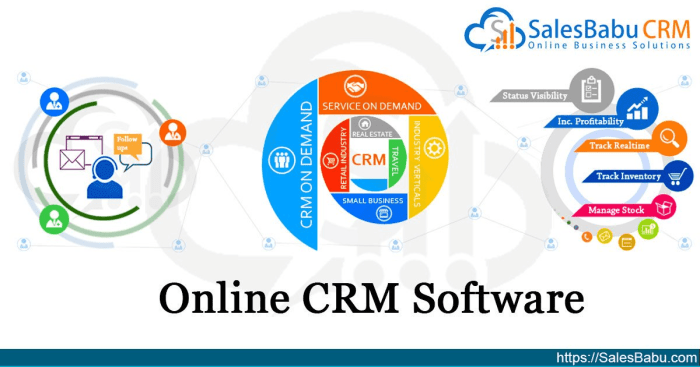Customer service software crm – In today’s competitive landscape, exceptional customer service is no longer a luxury—it’s a necessity. To deliver seamless, personalized experiences at scale, businesses are increasingly turning to Customer Service Software integrated with CRM (Customer Relationship Management) systems. This powerful combination streamlines operations, improves efficiency, and fosters stronger customer relationships. This comprehensive guide delves into the intricacies of customer service software and CRM, exploring their features, benefits, and how to choose the right solution for your business.

Source: solidperformers.com
Understanding Customer Service Software and CRM Integration
Customer service software, often integrated with a CRM, provides a centralized platform for managing all customer interactions. This goes beyond simply tracking customer data; it empowers businesses to proactively address issues, personalize communication, and analyze performance to drive continuous improvement. A robust CRM acts as the backbone, storing comprehensive customer information, purchase history, interaction logs, and more. The integration allows customer service agents to access this data instantly, providing context-rich interactions that enhance the customer experience.
Key Features of Customer Service Software Integrated with CRM:, Customer service software crm
- Ticketing System: Efficiently manage and track customer inquiries, requests, and complaints through a centralized ticketing system. This ensures no request falls through the cracks and allows for easy prioritization.
- Knowledge Base: A self-service knowledge base empowers customers to find answers independently, reducing the burden on support agents. This can include FAQs, troubleshooting guides, and video tutorials.
- Live Chat: Offer real-time support through live chat functionality, providing immediate assistance and improving customer satisfaction. Live chat integration with CRM provides agents with immediate access to customer profiles.
- Email Management: Streamline email communication, allowing agents to manage multiple inboxes, automate responses, and track email interactions within the CRM.
- Call Center Functionality (for some solutions): Handle phone calls efficiently, track call durations, and record calls for quality assurance and training purposes. Integration with CRM allows agents to see customer data during calls.
- Social Media Integration: Monitor and respond to customer inquiries across various social media platforms directly within the CRM, maintaining brand consistency and providing timely support.
- Reporting and Analytics: Gain valuable insights into customer service performance through comprehensive reporting and analytics dashboards. Track key metrics such as resolution time, customer satisfaction (CSAT), and agent performance.
- Automation and Workflow: Automate repetitive tasks such as email responses and ticket routing, freeing up agents to focus on more complex issues. Workflow automation ensures consistent service delivery.
- Customer Segmentation: Segment customers based on demographics, purchase history, or interaction data to personalize communication and offer targeted support.
- Multi-channel Support: Provide seamless support across multiple channels (email, phone, chat, social media) from a single platform.
Benefits of Using Customer Service Software and CRM
Integrating customer service software with your CRM offers numerous advantages, ultimately leading to improved customer satisfaction and business growth. These benefits include:
- Enhanced Customer Experience: Personalized interactions, faster response times, and seamless support across channels lead to happier customers.
- Improved Efficiency and Productivity: Automation and streamlined workflows reduce agent workload and increase overall efficiency.
- Increased Customer Retention: Positive customer experiences foster loyalty and reduce churn.
- Better Agent Performance: Access to comprehensive customer data empowers agents to provide more effective support.
- Data-Driven Decision Making: Comprehensive reporting and analytics provide valuable insights into customer service performance, allowing for data-driven improvements.
- Cost Savings: Increased efficiency and improved customer retention can lead to significant cost savings in the long run.
- Scalability: Easily adapt to growing business needs by scaling your customer service operations with the software.
- Improved Brand Reputation: Exceptional customer service builds a positive brand reputation and enhances customer loyalty.
Choosing the Right Customer Service Software and CRM
Selecting the appropriate customer service software and CRM requires careful consideration of your business needs and budget. Factors to consider include:
- Business Size and Needs: Small businesses may require a simpler solution, while larger enterprises need more robust features and scalability.
- Budget: Customer service software and CRM solutions vary widely in price, so it’s essential to find one that fits your budget.
- Integration Capabilities: Ensure the software integrates seamlessly with your existing systems (e.g., e-commerce platform, marketing automation tools).
- Features and Functionality: Choose a solution that offers the features you need, such as ticketing, live chat, email management, and reporting.
- User-Friendliness: The software should be intuitive and easy for your agents to use.
- Scalability: The solution should be able to adapt to your business’s growth.
- Customer Support: Choose a provider that offers excellent customer support and documentation.
Popular Customer Service Software and CRM Platforms
Numerous providers offer integrated customer service software and CRM solutions. Some popular options include (Note: This is not an exhaustive list and specific features vary):

Source: salesbabu.com
- Zendesk: A widely used platform offering a comprehensive suite of customer service tools.
- Salesforce Service Cloud: A powerful CRM solution with robust customer service capabilities.
- Freshdesk: A popular choice for businesses of all sizes, known for its user-friendly interface.
- HubSpot Service Hub: Integrated with the broader HubSpot marketing and sales platform.
- Intercom: Focuses on providing engaging and personalized customer support, especially through chat.
Frequently Asked Questions (FAQ): Customer Service Software Crm
- Q: What is the difference between customer service software and CRM?
A: Customer service software focuses specifically on managing customer interactions and support requests. CRM is a broader system for managing all aspects of customer relationships, including sales, marketing, and service. Integrated solutions combine both functionalities for a more powerful approach. - Q: How much does customer service software cost?
A: Pricing varies significantly depending on the provider, features, and number of users. Expect to find options ranging from free plans (often with limited features) to enterprise-level solutions with substantial monthly or annual fees. - Q: Is customer service software suitable for small businesses?
A: Yes, many customer service software solutions offer plans specifically designed for small businesses with simpler features and more affordable pricing. - Q: How can I measure the ROI of customer service software?
A: Track key metrics such as customer satisfaction (CSAT), resolution time, ticket volume, and agent productivity. Compare these metrics before and after implementing the software to assess the return on investment. - Q: What are the key features to look for when choosing customer service software?
A: Prioritize features like a robust ticketing system, live chat, email management, knowledge base, reporting and analytics, and seamless CRM integration.
Conclusion
Investing in integrated customer service software and CRM is a strategic move for businesses seeking to elevate their customer service and drive growth. By streamlining operations, improving efficiency, and fostering stronger customer relationships, these solutions deliver a significant return on investment. Choosing the right platform requires careful consideration of your specific needs and budget. Take the time to research various options, compare features, and select a solution that aligns with your long-term goals.
Call to Action
Ready to transform your customer service? Explore the options mentioned above or conduct your own research to find the perfect customer service software and CRM solution for your business. Start improving your customer experience today!
FAQ Summary
What are the key features of customer service software CRM?
Key features often include ticketing systems, knowledge bases, live chat, email integration, reporting dashboards, and customer data management tools.
How much does customer service software CRM cost?
Pricing varies widely depending on the features, scale, and vendor. Options range from free plans with limited functionality to enterprise-level solutions with substantial monthly or annual fees.
How do I choose the right customer service software CRM for my business?

Source: winsavvy.com
Consider your business size, budget, specific needs (e.g., integration with existing systems), and the level of customization required. Try free trials or demos before committing.
What is the integration process like with existing systems?
Integration capabilities vary depending on the software and existing systems. Some offer seamless integration with popular platforms, while others may require custom development.
How can I measure the effectiveness of my customer service software CRM?
Track key metrics like customer satisfaction (CSAT), resolution time, first contact resolution (FCR), and agent productivity. Utilize the reporting features within the CRM software.
